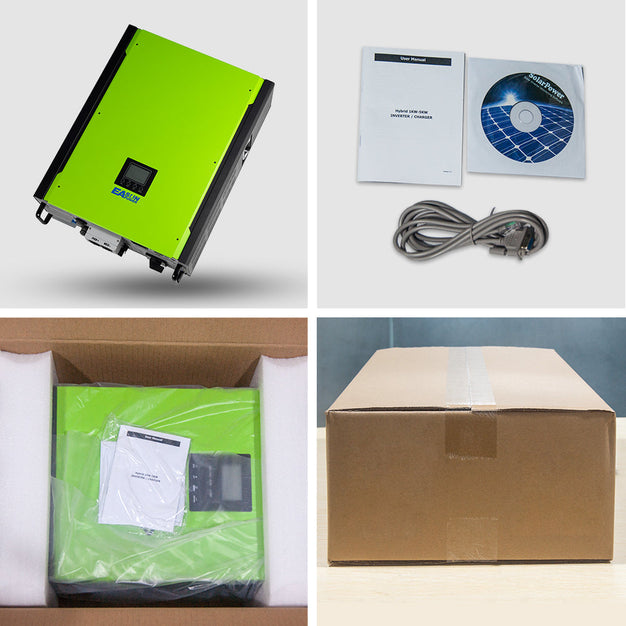When it comes to off-grid solar installations, the choice of inverter is crucial. Maximum Power Point Tracking (MPPT) inverters have become increasingly popular in the solar industry due to their numerous benefits. In this article, we will explore the advantages of MPPT inverters for off-grid installations and why they are the preferred choice for many solar professionals.

Optimizing Energy Harvesting
One of the key benefits of MPPT inverters for off-grid installations is their ability to optimize energy harvesting. MPPT technology allows the inverter to constantly track the maximum power point of the solar array, ensuring that the system operates at peak efficiency regardless of changing environmental conditions. This means that more energy can be harvested from the solar panels, maximizing the system's overall performance.
Furthermore, the use of MPPT inverters can result in a higher energy yield compared to other types of inverters, making them a cost-effective choice for off-grid installations in the long run.
Flexibility in System Design
MPPT inverters offer greater flexibility in system design, allowing for the use of different solar panel configurations and orientations. This flexibility is particularly beneficial for off-grid installations where space and environmental factors may limit the ideal placement of solar panels. By using MPPT inverters, solar professionals can design systems that are tailored to the specific needs and constraints of off-grid locations, maximizing energy production and system reliability.
Battery Charging Efficiency
Another advantage of MPPT inverters for off-grid installations is their superior battery charging efficiency. MPPT technology ensures that the solar panels deliver the maximum power to the batteries, resulting in faster charging times and improved overall battery performance. This is especially important for off-grid systems, where reliable energy storage is essential for meeting power demands during periods of low solar irradiance.
By using MPPT inverters, off-grid installations can achieve higher levels of energy autonomy and reduce their reliance on backup power sources, making them more sustainable and cost-effective in the long term.
Remote Monitoring and Control
MPPT inverters often come with advanced monitoring and control features that allow for remote system management. This is particularly valuable for off-grid installations, where regular on-site maintenance may be challenging or impractical. With remote monitoring capabilities, solar professionals can easily track the performance of off-grid systems, diagnose issues, and make adjustments as needed, ensuring optimal system operation and reliability.
Furthermore, the ability to remotely control MPPT inverters can help in maximizing energy production and battery charging efficiency, ultimately enhancing the overall performance of off-grid solar installations.
In conclusion, the benefits of MPPT inverters for off-grid installations in the solar industry are undeniable. From optimizing energy harvesting and offering system design flexibility to improving battery charging efficiency and enabling remote monitoring and control, MPPT inverters are a valuable asset for off-grid solar professionals. As the demand for off-grid solar solutions continues to grow, the role of MPPT inverters in maximizing system performance and reliability will only become more significant.








